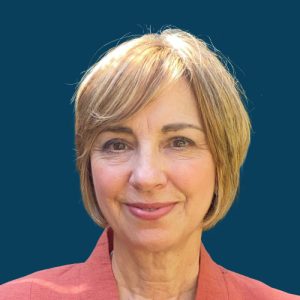Event Summary
At a panel entitled “U.S. – Libya Relations: Beyond Silence” on March 2, in front of an overflowing audience in the Inter-Cultural Center, Prof. Michele Dunne and Prof. Tarik Yousef discussed the future of relations between the two countries and stressed the importance of attention to political reform in Libya.
Dunne, a visiting Assistant Professor in the Arabic Dept. and editor of the Arab Reform Bulletin at the Carnegie Endowment for International Peace, began the event by describing the recent negotiations between Libya, the United States and Britain. She discussed the negotiations’ shift from state terrorism to weapons of mass destruction and the phased process by which the United States and United Nations have started to lift certain restrictions in return for specific Libyan acts.
Both Prof. Dunne and Tarik Yousef, an Assistant Professor of Economics in the School of Foreign Service and Shaykh Al-Sabah Chair in Arab Studies in the Center for Contemporary Arab Studies, then identified and discussed two current perspectives on U.S. policy towards Libya.
One perspective, promoted especially by some current and former government officials, holds that full-fledged normalization and an expanded bilateral relationship are in both Qaddafi’s interest and American interests. The other perspective, with which the speakers more closely identified themselves, prioritizes the importance of internal political reform and the interests of the Libyan people.
“When will the people of Libya matter?” asked Prof. Yousef. “Make no mistake about it: They are watching, they are seeing, and they are listening. They heard the inauguration speech by President Bush and Secretary Rice’s testimony before congress.”
“While I was and remain a supporter of the deals that the United States reached with Libya on terrorism and on weapons of mass destruction, I’m concerned about the way the relationship is headed now,” said Prof. Dunne. “My concern is that the relationship is being established and conducted without enough regard for developments inside Libya itself, particularly as regards human rights and prospects for reform, particularly political reform and legal reform.”
The speakers cited several reasons why the former point of view, which deemphasizes internal political reform in favor of more traditional interests, has remained a viable and popular perspective on Libya. First, they said, the Bush administration has sought to portray Libya’s abandonment of weapons of mass destruction as an American foreign policy success. But Libya’s enduring authoritarianism clouds this picture, Prof. Dunne said, if Libya is excepted from the administration’s policy towards democracy and reform in the region.
Second, according to the speakers, many people inside and outside the administration have not recognized the need for democratization in Libya; they have preferred working with a country where they can do business in a more traditional diplomatic way. Prof. Yousef cited this perspective as a myopic, “pre-9/11” way of thinking. This approach, he said, also ignores the lesson from the 1990s that economic and political reforms must go together in the Middle East.
At the same time, Prof. Dunne noted that the new relationship is not entirely devoid of consideration for the Libyan people’s interests. There is a human rights dialogue, she said, but she emphasized that the administration must have a strategy to evaluate the legal, political, and economic reforms called for by Libyans themselves and support those that are most feasible for the U.S. There may be particular opportunities in reforming the court system, she noted.
After the panelists’ comments, there was an extended question-and-answer period. One former State Department official questioned the desirability of conditioning the American relationship with Libya on internal political reform. The official argued that American levers of influence are limited and said that using them to promote democratization would endanger progress in other areas, especially national security issues and economic reform.
The panel was co-sponsored by the Project on Middle East Democracy (POMED), the Center for Contemporary Arab Studies (CCAS), and Americans for Informed Democracy (AID). It was moderated by Lara Aryani, an M.A. in Arab Studies student and co-founder of The Project on Middle East Democracy (POMED).
“U.S. – Libya Relations: Beyond Silence” was the inaugural event for POMED, an organization dedicated to fostering a vibrant dialogue on democracy between Americans and Middle Easterners.
Event Details
Date: March 2, 2005
Panelists
Michele Dunne
Tarik Yousef
Downloads
Click here to read POMED’s full notes from the event.

